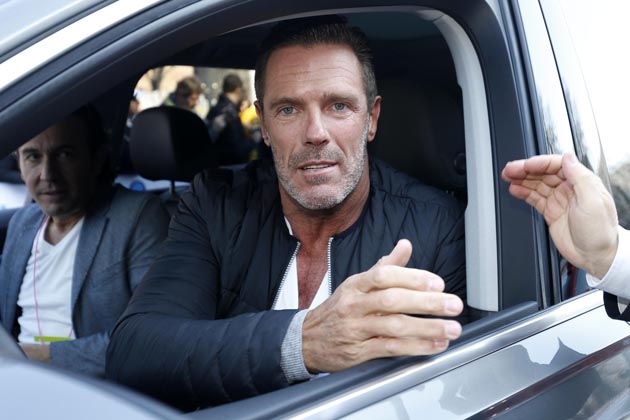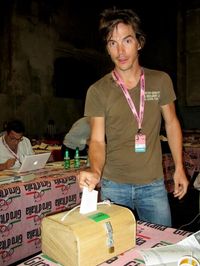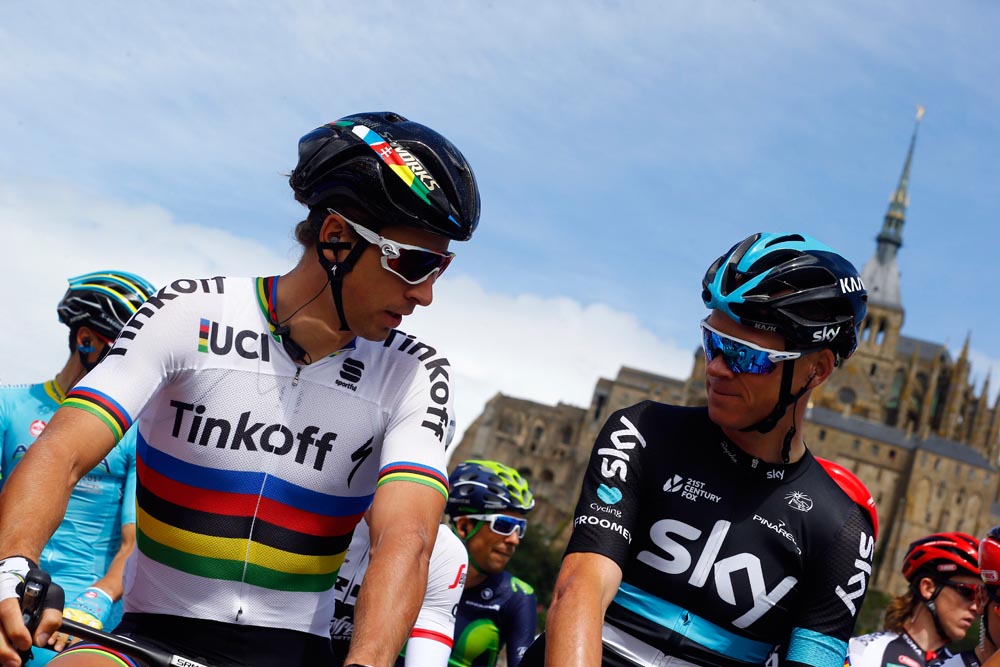Mario Cipollini berates 'boring' races where Chris Froome and Peter Sagan dominate
Italian former pro Mario Cipollini wonders why other teams and riders can't come up with a strategy to beat Chris Froome in the Tours and Peter Sagan in one-day races

Mario Cipollini.

Cycling has become a "bit boring" in the way that Team Sky and Chris Froome dominate stage races and how rival teams fail to stop Peter Sagan, says former sprint great Mario Cipollini.
Slovakian Sagan (Bora-Hansgrohe) won his third consecutive World Championship title in Bergen, Norway, on Sunday. Cipollini won his world title 15 years ago.
"Since the start of cycling, if you don't have a strong national team then you can't play for the world title. Sagan alone, however, wins three," Cipollini told Radio24.
"Sagan is an exceptional champion, no doubt about it, but all the others? All the coaches, all the sports directors... What are they doing? Why do they let Sagan have a chance to sprint when in a race of 267 kilometres they can instead create another situation?
>>> Peter Sagan reflects on ‘unbelievable’ Worlds win as he dedicates victory to Michele Scarponi
"This 'cycling' is a bit boring. Take the Tour de France and the last Vuelta a España, Sky riding in the front and setting the rhythm. And Froome's helpers are as strong as his main opponents, so they take care of the attackers – Nibali, Bardet, and the others.

"Then, of course, Froome in the last three minutes of racing, the last one and a half kilometres, is trained and ready to make the difference. It's a monotonous strategy that does not allow us to see something extraordinary."
The latest race content, interviews, features, reviews and expert buying guides, direct to your inbox!
The Italian employed similar strong-arm tactics via teams Saeco and Acqua Sapone/Domina Vacanze to win his stages in Grand Tours – a record 42 in the Giro d'Italia – and classics Milan-San Remo, Ghent-Wevelgem and Scheldeprijs. Their lead-out paved the way for the modern sprint trains used by Mark Cavendish and Marcel Kittel.
"I wonder what has changed in cycling over the past 15 years. When I went to race the Zolder World Championships in 2002, when I was considered the favourite, my opponents were Erik Zabel and Robbie McEwen, namely Germany and Australia. Two great teams that did not help at all, so the responsibility was on the Italian national team all day."
The 50-year-old wants to see other teams mount stronger offences against the stars instead of playing into their hands.
"Lance Armstrong himself had to deal with two national teams like Telekom and ONCE to fight for his victories. Miguel Indurain too, who also won a wave of Tours, also had some important rider to counter him. Now, Sky and Froome rule stage races and in one-day races, it's Sagan, who also occasionally enjoys throwing them away," Cipollini continued.
"Sagan leaves the day before to go to the world championship in Bergen, when others go early to acclimatise to the system, to see the streets, study curves. He gets there the day before, like playing a game of cards.
"The same thing with Alberto Tomba, who was at the start of an Olympics or World Championship with almost a childish unconsciousness. This is my view, I hope not wrong, but it shows that Sagan lives cycling in such a superior way, and his opponents do not even know how to make his life difficult."
Cipollini, who briefly returned to cycling, retired in 2008. Many of his biggest victories are tarnished, however, by a report four years ago in La Gazzetta dello Sport newspaper that linked him via codename 'Maria' to the Operación Puerto doping scandal. Documents showed he used transfusions, EPO, hormones and paid €130,000 for doping.
Gregor Brown is an experienced cycling journalist, based in Florence, Italy. He has covered races all over the world for over a decade - following the Giro, Tour de France, and every major race since 2006. His love of cycling began with freestyle and BMX, before the 1998 Tour de France led him to a deep appreciation of the road racing season.
